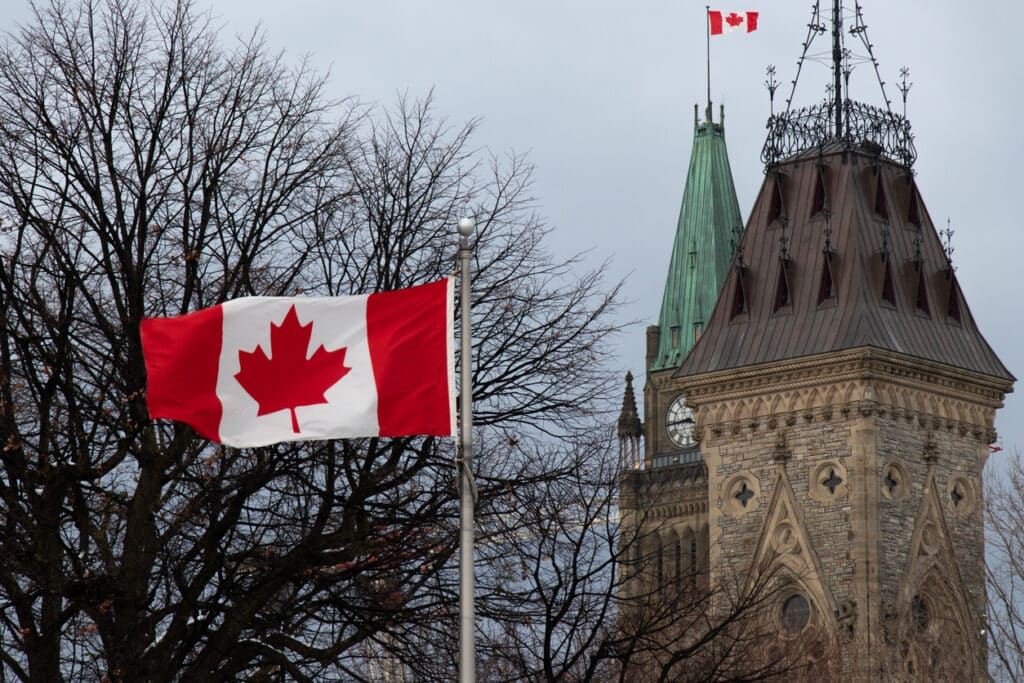Canada’s Budget 2024 was met with what can diplomatically be described as a mixed bag of reactions when it dropped last Tuesday.
While many of the spending commitments outlined were as expected—$23 billion towards housing and infrastructure, and even $2.4 billion toward boosting homegrown AI innovation—policy changes (or a lack thereof) drew ire across the tech community.
For starters, the news landed at the height of the INNOVATEwest conference in Vancouver, where many of the founders, funders and ecosystem partners on hand were baffled by both the continued delays to open banking as well as new Capital Gains taxes.
But buried within much of the disappointment were a few bright spots, including more than $600 million committed toward enhancing Canada’s banner Scientific Research and Experimental Development (SR&ED) program over the next four years.
In addition to that, The Department of Finance also included $3.5 billion in new strategic research grants and more than $2 billion in scholarships targeting cutting-edge technologies—features the government has been touting with a string of news releases to combat the bad press in response to last week’s announcement.
Still, potential SR&ED recipients remain frustrated with the pace of consultations, which will enter a second phase as part of the Budget 2024. This comes as the first phase of SR&ED consultations wrapped last week, a process that had already been delayed following Budget 2022.
We’ll unpack what the line items of the latest budget mean for funding innovation, how leaders in our own innovation community are parsing the news, and strategies for driving innovation in any market.

Will delays to open banking hurt Canada’s global standing?
Despite being one of the strongest economies in the world, Canada remains the only G7 nation yet to establish a formal open banking system as of Budget 2024. While the budget allocated $1 million to the Financial Consumer Agency of Canada (FCAC) to oversee the creation of an open banking framework, there were no clear deadlines on when new policies could come into effect.
Implementing open banking has been a budget priority for the Liberal government since at least Budget 2018 when it was first promised, with many hoping Budget 2024 would finally signal a course change.
This was a serious pain point during the Unlocking a Data Driven Economy breakout session at INNOVATEwest, where moderator Michelle Beyo, CEO & Founder of Finavator Inc., emphasized that Canada is notably behind other economies in launching open banking in particular.
“Brazil even has us beat; they launched their own open banking framework in one year back in 2021 and hit 5 million connected accounts in less than 12 months,” Beyo explained, before listing other nations that have seen success adopting open banking.



The Council of Canadian Innovators (CCI) were optimistic by the steps taken in the budget, however, and despite there being no firm timeline defined by Budget 2024 for an open banking launch, Nick Schiavo, CCI Director of Federal Affairs saw the announcement as welcome news.
“Taking tangible steps forward on open banking is welcome news. Canada has incredible financial innovators, and with the appropriate regulatory framework in place, the sky’s the limit for improved financial services for citizens. The devil is in the details, but in today’s announcement we see a government tangibly moving forward with open banking, and that’s good news,” Schiavo said in a statement.
Capital Gains tax riles Canadian tech leaders
There were far fewer silver linings in immediate response to the new Capital Gains tax rules outlined by Budget 2024, however.
Effective June 25, 2024, individuals earning more than $250,000 CAD will see the inclusion rate on capital gains jump from 50 percent to 66 percent.
ALL capital gains from businesses and trust will similarly be increased from one-half to two-thirds, while the lifetime capital gains exemption will be raised from $1 million CAD to $1.25 million CAD.
The budget also included a new Canadian Entrepreneurs’ Incentive, which reduces the inclusion rate to 33 percent on a lifetime maximum of $2 million CAD worth of eligible capital gains. To achieve this, the model will increase by $200,000 annually (beginning in 2024) until topping out at $2 million in 10 years (2034).
While the new measures are estimated to immediately bring in almost $20 million in revenue for the government over the next 5 years, many leaders in the Canadian tech community fear the costs will be too high.
One such consequence of the increase in Capital Gains taxation is that VCs may ultimately choose to invest outside of Canada where Capital Gains taxes are lower—which would have a disastrous impact on the innovation community across the country.
This could cause a cascading “brain drain” into the United States with less VC funding to go around in Canada, as founders instead seek incorporation in places like Delaware to take advantage of the more favorable business tax landscape.
“This measure, which effectively taxes innovation and risk-taking, will significantly dampen Canada’s entrepreneurial spirit, stifle economic growth in critical sectors of our economy, and impact job creation. Such policy change undermines Canada’s position to attract the talent needed to grow and scale companies here,” Kim Furlong, CEO of the Canadian Venture Capital & Private Equity Association said on LinkedIn.
Support for VCs and renewed interest in AI
While the VC community is understandably upset by the Capital Gains tax news, Budget 2024 did include $200 million over two years toward the Venture Capital Catalyst Initiative (VCCI), a Covid-era initiative aimed at helping entrepreneurs, startups and scale ups “become the next generation of Canadian anchor companies.”
Although the VCCI targets emerging businesses, however, there are fears that it will do little to support growth-phase businesses as they increase their capital gains and enter new tax brackets.
Ben Bergen, president of Council of Canadian Innovators, echoes these concerns in his own statements responding to Budget 2024, emphasizing that capital gains will do “irreparable harm” to Canada’s innovation ecosystem by ultimately penalizing success.
“The fact of the matter is that the best way to boost revenue for the government is to drive economic growth and productivity gains, and the best possible way to do that is by championing the success of Canada’s homegrown innovators,” Bergen’s statement reads.
Funding your growth at any stage
As a team of innovators, founders and technologists in our own right, we at Boast strive to give members of our global tech community as much access to the innovation capital they deserve to see their ideas take lift.
This includes working with business leaders at all stages of their journey to tap into non-dilutive funding programs—including SR&ED—to stretch the investments their already making into R&D and product development further than ever before.
So when storm clouds seem to be gathering in response to news around the federal government’s stance on funding innovation, your partners and friends at Boast are here to help you navigate (and capitalize on) whatever the market has in store.
Fortunately, the latest budget didn’t substantially impact the generosity of the SR&ED program, which enables any CCPC driving truly unique innovation to recoup a share of their research and development investments and continue driving market differentiation—and ultimately achieving growth.
Best of all? Boast makes it easier than any other tax credit solution to maximize your claim values without putting a heavy burden on your team. We’ve helped more than 1,500 companies across North America complete more than 4,500+ successful claims—all with an industry-leading audit rate and only 5 hours of commitment from customers on average.
To learn more about what sets Boast apart, talk to an expert on our team today.
Budget 2024 FAQ
- What were the major concerns around Budget 2024 for the tech/innovation community? The lack of a firm timeline for implementing open banking regulations and the increase in capital gains taxes drew significant criticism, with fears it could stifle investment and innovation in Canada.
- How were capital gains taxes changed? For individuals earning over $250,000, the capital gains inclusion rate rises from 50% to 66.6%. For businesses/trusts, it increases from 50% to 66.6%, though a new Canadian Entrepreneurs’ Incentive caps the rate at 33% on up to $2M of eligible gains.
- What funding was announced to support innovation? Budget 2024 included over $600 million to enhance the SR&ED tax credit program over 4 years, $200 million for the Venture Capital Catalyst Initiative, and billions for strategic research grants and scholarships.
- Why is the delay on open banking regulations concerning? The lack of an open banking system makes Canada the only G7 nation without such a framework, potentially hampering fintech innovation and putting the country behind global peers.
- How can companies access innovation funding despite the budget concerns? Programs like SR&ED allow companies to claim tax credits on R&D expenditures and unlock non-dilutive capital, which can help drive innovation regardless of broader tax/regulatory changes.
| What? | Why? | Who is impacted? |
| Capital Gains tax adjustment Individuals earning more than $250,000 CAD will see the inclusion rate on capital gains jump from half to two-thirds. Businesses and trust will similarly be increased from 50% to roughly 66%, while the lifetime capital gains exemption will be increased from $1 million CAD to $1.25 million CAD. | Arguably, the new framework makes Canada’s tax system “more fair” for startups, while bringing in almost $20 billion in revenue over the next 5 years. | According to the tech community, innovators and investors who are willing to put capital into new businesses. VCs may also ultimately choose to invest outside of Canada where Capital Gains taxes are lower—impacting the innovation community across the country. |
| Open banking launch date still not defined. | Despite being one of the strongest economies in the world, Canada remains the only G7 nation yet to establish a formal open banking system as of Budget 2024. $1 million was granted to the Financial Consumer Agency of Canada (FCAC) to oversee the creation of an open banking framework. | Canada and Canadians, as the country continues to lag behind global peers in supporting payments, fintech and innovative banking practices. |
| $600 million to SR&ED over the next 4 years. This includes the launch of Phase 2 of SR&ED consultations. | The government has continued to seek guidance from business leaders on how to enhance the banner R&D tax credit, but remains non-specific on actual action items. | The consultations should be a boon for all CCPCs, assuming funding continues to be offered at least commensurate with current levels. Still, timelines for changes and learnings to date haven’t been shared by federal leaders running consultations so far. |
| $200 million to VCCI | The government will continue to support it’s Covid-era VC fund to help startups and scaleups bring their innovations to reality, despite otherwise tight lending or funding markets. | Canada’s VC ecosystem, as well as startups, who will all benefit from the capital injection through funds-of-funds and direct investments. |
